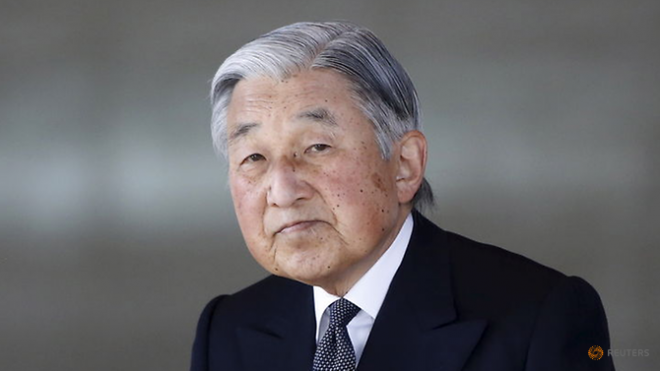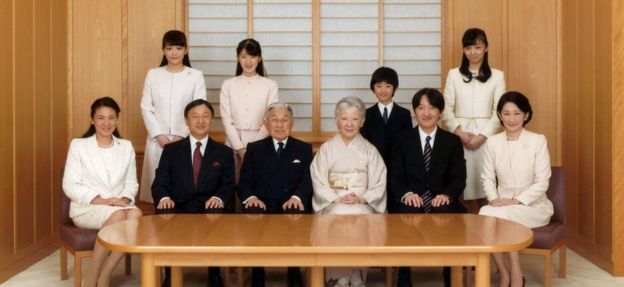
Japan's parliament passed a one-off bill on Friday allowing Emperor Akihito to step down in favour of his elder son, Crown Prince Naruhito. Emperor Akihito becomes the first emperor to abdicate in 200 years, putting off a debate over how to tackle the shrinking royal population including male successors.
Last year in July, the 83-year-old emperor expressed his desire to retire due to his age and declining health that were making it hard for him to fulfill his official duties. This announcement had surprised the nation. Emperor Akihito's desire was interpreted as his wish to hand the crown to his eldest son, Crown Prince Naruhito.
But there is no provision under the existing law for him to abdicate and be succeeded by Crown Prince Naruhito. Thus, the politicians had to craft legislation to make it possible.
This latest law will expire in three years and the date when Emperor Akihito, 83, hands over the Chrysanthemum Throne, though yet to be fixed, is widely expected to be in December next year. Only posthumous succession has been allowed since the Meiji Constitution was enacted in 1889, and he will be the first monarch to abdicate since Emperor Kokaku in 1817.
Although there was disagreement on how the Bill should be drafted, but the opposition Democratic Party (DP) favoured a permanent revision. Its passage was hardly in question given the Emperor's huge popularity, and after the ruling Liberal Democratic Party (LDP) stressed it would serve as a "legal precedent" for future abdications.

The status of the emperor is highly sensitive in Japan given its 20th century history of war waged in the name of Akihito's father Hirohito, who died in 1989. Akihito, who has had heart surgery and was treated for prostate cancer, is loved and revered by many Japanese.
The leading opposition Democratic Party has argued the law should be permanently changed to ensure stable future successions. But, it is reportedly on side with the current one-off bill after talks with the ruling bloc.
Some scholars and politicians have also argued that changing the law to allow any emperor to abdicate would risk Japan's monarchs becoming subject to political manipulation. The succession issue has also highlighted concerns over a potential succession crisis in one of the world's oldest monarchies.
Under the current law, female members of the imperial family are not allowed to inherit the throne. Only male members are allowed to become emperor. Women must give up their royal status when marrying a commoner. Thus, Princess Aiko, the daughter of Crown Prince Naruhito, cannot succeed her father. However, Japan has had empresses in past centuries.
Last week, the parties have struck a compromise in adding a non-binding supplementary resolution amid concerns of a shrinking pool of royals to perform official duties, reignited by news of Princess Mako's impending engagement. The motion reads: "Issues related to ensuring stable Imperial succession and the creation of female-led Imperial branches are important matters that cannot be postponed."
After Princess Mako, 25, gets married to paralegal Kei Komuro, 25, the total number of imperial family members will fall to 18. Out of those 13 are women and eight are below 40 years old. Of the eight, seven are unmarried females.
Thus after Crown Prince Naruhito, 57, his brother Prince Akishino, 51 is next in line followed by the latter's son Hisahito, 10. Crown Prince Naruhito will become the 126th monarch in the world's oldest hereditary bloodline said to date back to 660BC.








